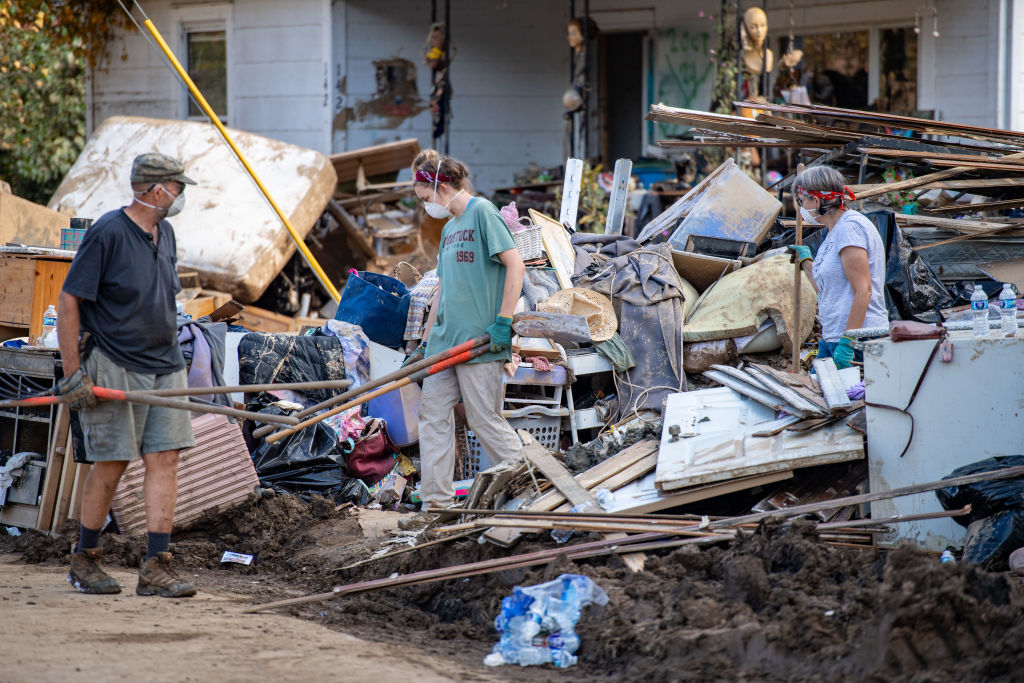A viral Facebook post highlights the substantial destruction western North Carolina sustained during Hurricane Helene last year. The post comes at a time when eyes are focused on the wildfires in Los Angeles and seeks to remind viewers of the damage caused by the hurricane.
According to the post, 126,000 homes were destroyed, 104 people killed, and $60 billion in damages sustained in western North Carolina alone. Some versions of the post also include an image—likely AI-generated—of a child holding a cardboard sign asking, “What about NC?”
The post is mostly true, but uses an outdated estimate of the number of homes damaged or destroyed in North Carolina.
Some early estimates of storm damage indicated that more than 125,000 housing units were damaged or destroyed by Helene in North Carolina, but official estimates are now lower. According to the North Carolina Office of State Budget and Management, which released an updated Damage and Needs Assessment for Helene in December, the storm is expected to have damaged approximately 73,000 homes across the state.
While the post slightly overstates damage to homes in North Carolina, it correctly identifies the total monetary damages and loss of life from the storm. According to the same report, North Carolina incurred approximately $59.6 billion of damages and needs. Of this, about $44.4 billion is attributable to direct damage, $9.4 billion to indirect or induced damage, and $5.8 billion to potential investments that could help the state protect against or mitigate similar damage in the future.
The North Carolina Department of Health and Human Services has also confirmed 104 storm-related deaths as of December 23, 2024, though that number could still rise as recovery efforts continue.
If you have a claim you would like to see us fact check, please send us an email at factcheck@thedispatch.com. If you would like to suggest a correction to this piece or any other Dispatch article, please email corrections@thedispatch.com.










Please note that we at The Dispatch hold ourselves, our work, and our commenters to a higher standard than other places on the internet. We welcome comments that foster genuine debate or discussion—including comments critical of us or our work—but responses that include ad hominem attacks on fellow Dispatch members or are intended to stoke fear and anger may be moderated.
With your membership, you only have the ability to comment on The Morning Dispatch articles. Consider upgrading to join the conversation everywhere.